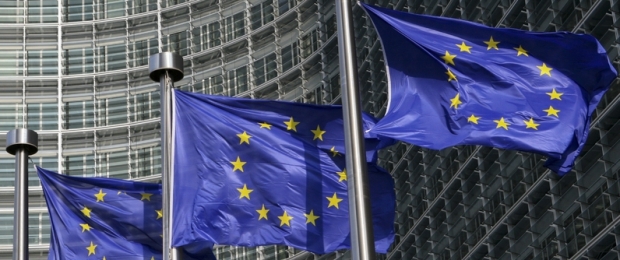
The unholiest of alliances
Yes, there really are some people who believe in a federal super-state. They want the EU to evolve into something like the USA, with a strong central government responsible to the European Parliament. Joschka Fischer, the German foreign minister, wants an elected European president and a federal constitution. Romano Prodi, the Commission president, aspires to lead European foreign policy and talks of a European army. And the ambassador to the UK of one small member-state recently told me that tax and social security systems should be harmonised across the EU.
These European idealists believe that the EU is moving inexorably towards a federal future. So, too, do the Eurosceptics, in Britain and elsewhere. The more the pro-Europeans bang their federalist drum, the more joyfully the sceptics dance. The latest quote from Fischer or Prodi proves that continental Europe is still hell-bent on a super-state.
In fact the federalists and the Eurosceptics are locked into an unholy alliance, one that is dedicated to the denial of the truth - namely that federalism is dead, that the Commission has been sidelined, and that governments committed to a pragmatic European Union have taken it over.
The evidence for this shift is only too obvious, for those who bother to look. The so-called "community method" - with the Commission proposing measures, and the Council of Ministers and the Parliament approving them - still applies in fields such the single market and trade. But in areas where the EU is extending its involvement, such as foreign and defence policy, or the fight against crime, the governments are in charge. Javier Solana, the EU's foreign policy chief, reports to the foreign ministers. The Commission has little sway over Solana and no involvement at all in the new Rapid Reaction Force.
Even in crucial areas such as economic reform and employment, the community method has been cast aside. As Kirsty Hughes explains in her article overleaf, it is the governments which agree on common targets and benchmarks, and then exchange best practice. The Commission can facilitate peer-group pressure and chivvy governments to meet their targets. But it has no power to force them to do so. In economic reform, as with foreign policy, defence or police co-operation, every government keeps its veto. No sovereignty is ceded.
The European Council, which works by unanimity, drove forward the economic reform process at last year's Lisbon summit, and will do so again in Stockholm next March. The European Council has emerged as the EU's strategic authority. The heads of government, rather than the Commission, are setting the EU's agenda. The Commission is learning to follow their lead.
The federalists and the Eurosceptics do not like these changes. It suits both their purposes to pretend that Europe still works the way it did in the age of Kohl, Mitterrand and Delors (Larry Siedentop's hugely successful Democracy in Europe assumes that Europe circa 1990 still exists; he is perhaps part-federalist, part-sceptic). Why do the sceptics keep quoting Fischer? Because most of the other foreign ministers sing a very different tune. Indeed, Schroder, Chirac and Jospin are no more committed to a federal agenda than is Blair.
This shift towards a more inter-governmental Europe was predictable. The Union has fulfilled most of its economic objectives, such as the creation of the single market and the single currency. The new challenges are to build an effective foreign and security policy, and to strengthen co-ordination in the fight against organised crime. The only sort of integration that is feasible in such sovereignty-sensitive areas is inter-governmental.
Furthermore, the EU institutions are increasingly unpopular, partly because they are, inevitably, distant, and partly because they have often been badly run. The Commission and the Parliament are suffering from a serious lack of legitimacy. Public opinion, and not only in Britain, does not wish to see these bodies becoming ever-more powerful. The European Council, by contrast, representing elected heads of government, has at least some legitimacy. Ten years ago, anyone who argued that the way to overcome the democratic deficit was to enhance the role of the European Council, rather than give more power to the Parliament, would have been regarded as mad. Yet Tony Blair's recent proposal to strengthen the European Council has won support in many other EU capitals.
The creation of the euro, it is true, shifted a lot of power from the Bundesbank to a supranational institution, the European Central Bank. But it may prove to be federalism's final fling. The balance of power within the EU is now shifting from its institutions to the governments. The prospect of a super-state is ever more distant. Yet the unholy alliance of federalists and sceptics prefers to ignore this fact.
